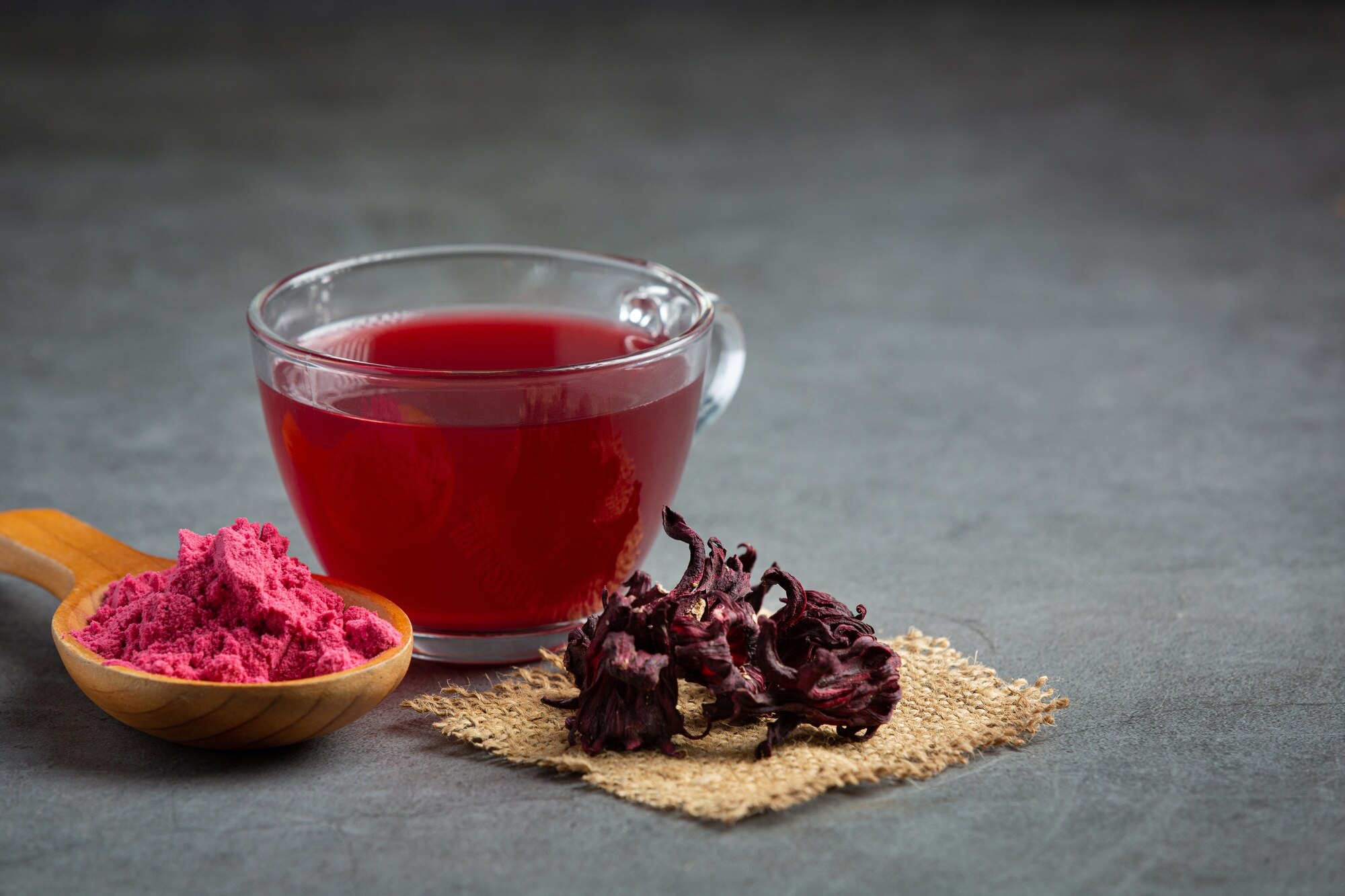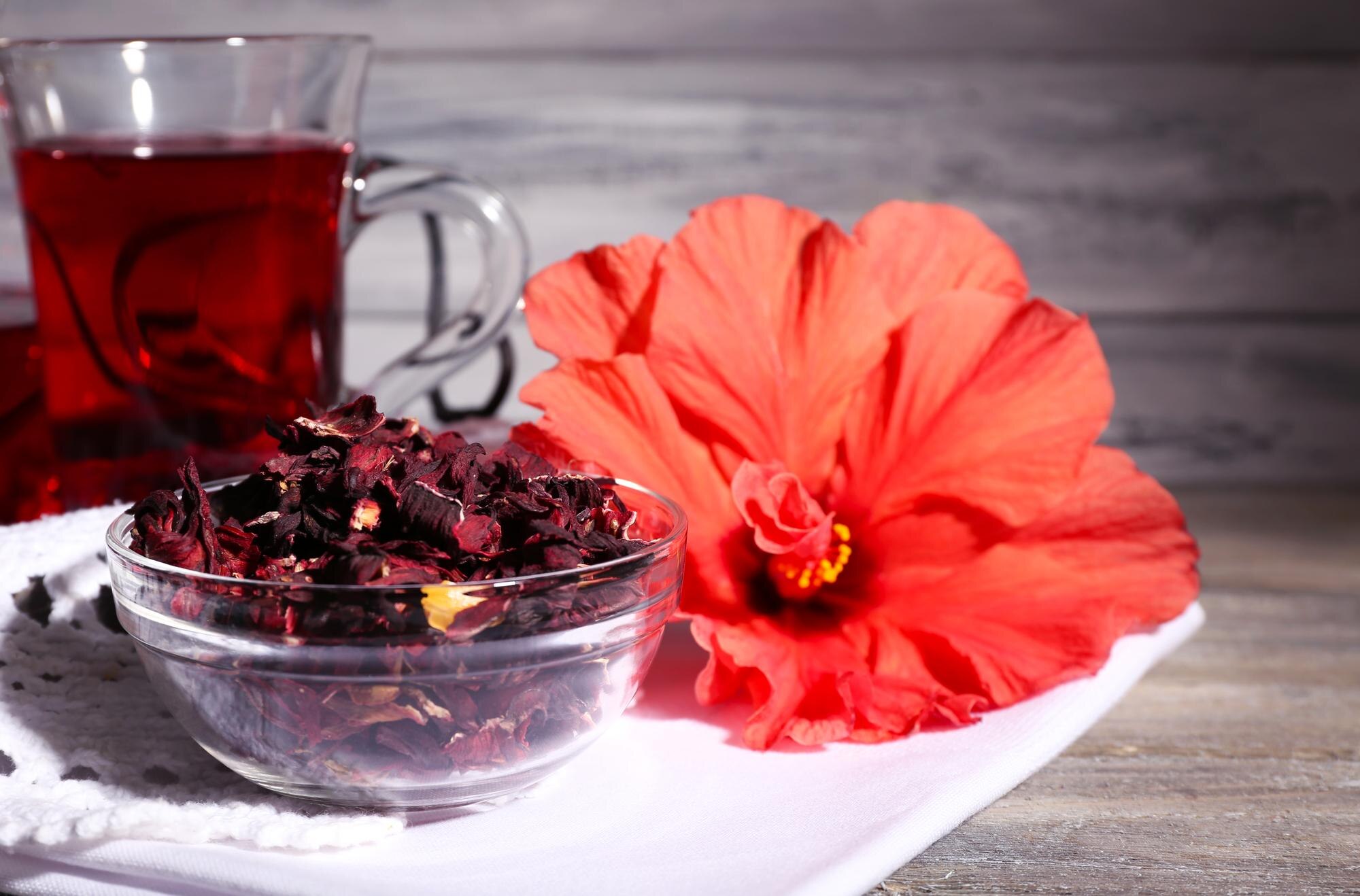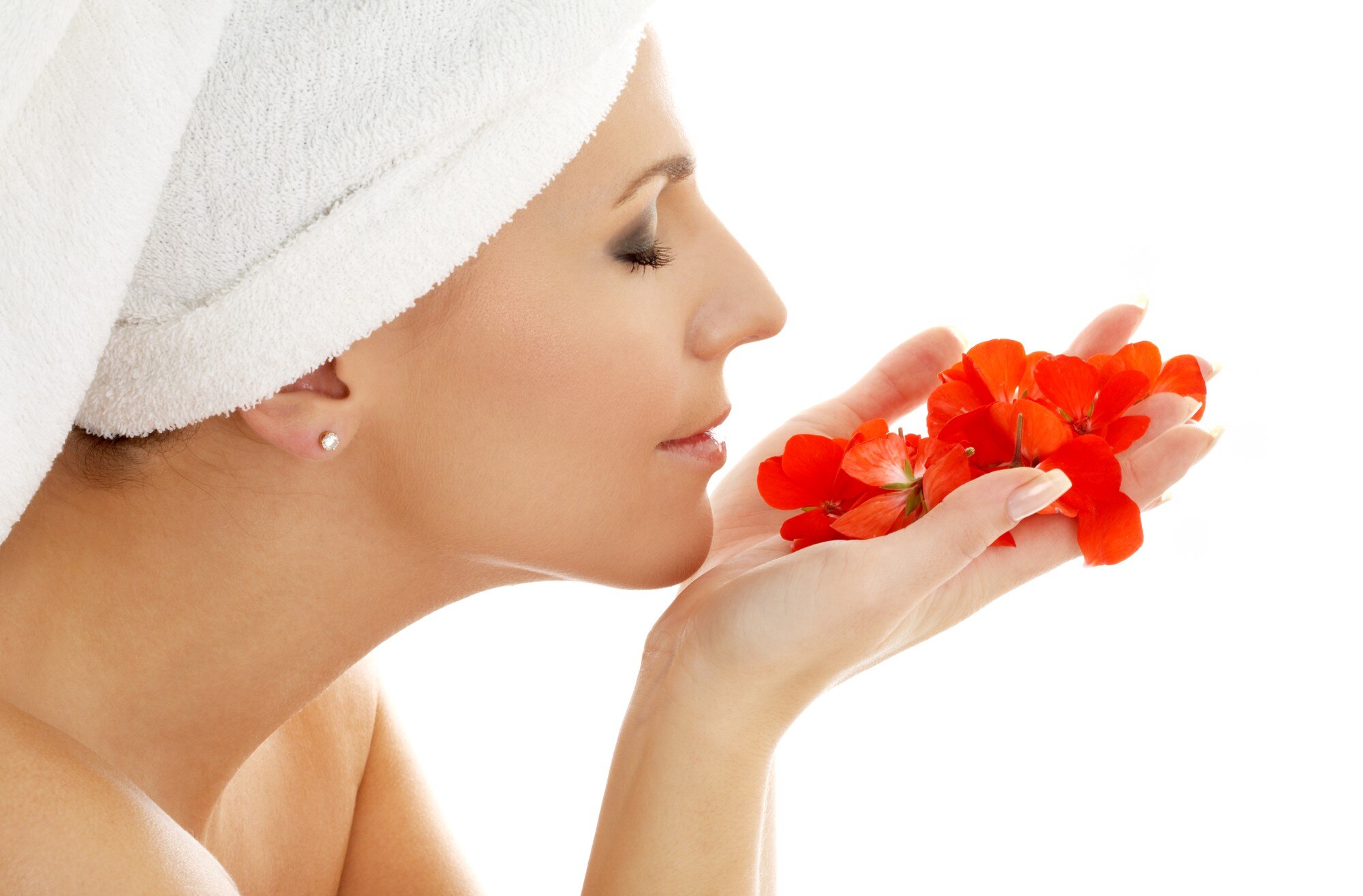The hibiscus flower plant, known for its stunning beauty, also contains multifaceted benefits for skin health.
It is also referred to as a ‘Botox herb’, containing the goodness of minerals, vitamins, and important antioxidants to ensure healthy, youthful, and radiant skin.
This guide on hibiscus benefits for skin will provide you with essential information about the effective ways to use this flower plant in your skincare routine.
Is Hibiscus Good for Skin?

Hibiscus is more than just a pretty flower. Its petals are enriched with skin-enhancing properties, thereby making it a sought-after ingredient in skincare.
A member of the Malvaceae plant family, hibiscus is known for its ability to moisturize, exfoliate, and firm the skin. Originally from Africa, it’s now widely grown in tropical and subtropical regions like India, China, Malaysia, and Sudan.
Moreover, it is a rich source of calcium, potassium, iron, copper, magnesium, zinc, vitamin A, E, and K, which may immensely benefit your skin.
Therefore, whether you want glowing skin or are looking for a refreshing fragrance, hibiscus is a natural treasure that benefits your skin and mind in multiple ways.
Hibiscus Benefits for Skin
Hibiscus is a great natural ingredient for skincare, offering a variety of benefits.
Here’s a more detailed look at the hibiscus benefits for skin :
Anti-aging:
- Hibiscus is rich in antioxidants, including anthocyanins, which help protect against free radical damage that can lead to premature aging.
- It contains natural AHAs (alpha hydroxy acids) that gently exfoliate, promoting cell turnover and revealing smoother, younger-looking skin.
- It can help boost collagen production, improving skin elasticity and firmness.
Brightening & Exfoliating:
- Hibiscus has natural acids that help to exfoliate the skin, removing dead skin cells and revealing a brighter complexion.
- It can help fade dark spots and hyperpigmentation, promoting a more even skin tone.
Hydrating & Soothing:
- Hibiscus is known to help with skin hydration and moisture retention.
- It contains natural anti-inflammatory properties, making it soothing for irritated or inflamed skin.
Pore Reduction:
- Hibiscus has astringent properties that can help to tighten pores and control oil production.
Other Benefits:
- Hibiscus can help reduce the appearance of acne breakouts and soothe inflammation.
- It can improve skin elasticity and firmness.
How to use Hibiscus for skin:
- Hibiscus powder: Can be mixed with water or other ingredients to create a face mask or scrub.
- Hibiscus tea: Can be used as a toner or added to a bath.
- Hibiscus-infused products: Look for skincare products that contain hibiscus extract.
Step-by-Step Guide to Use Hibiscus For Skin

This part focuses on two diy examples of hibiscus uses for skin, to promote a brighter complexion and enhance the texture of your skin over time.
Hibiscus Face Mask Recipe :
Ingredients :
- Dried hibiscus petals (2 tablespoons)
- Plain yogurt (1 tablespoon)
- Honey (1 teaspoon)
Instructions :
- Prepare a fine powder by grinding the dried hibiscus petals.
- Blend hibiscus powder, honey, and yogurt for a smooth paste.
- Apply the mask to cleansed skin and let it remain for 15-20 minutes.
- Rinse and pat dry. Apply a moisturizer.
Hibiscus Toner Recipe :
Ingredients :
- Half cup brewed hibiscus tea (cooled)
- Witch hazel (1 tablespoon)
Instructions :
- Begin by making hibiscus tea. Steep dried hibiscus petals in hot, boiling water for 10-15 minutes. Turn off the heat flame. Let it cool.
- Combine brewed hibiscus tea and witch hazel.
- Pour into a container or clean bottle.
- After cleansing and using a cotton pad, apply the toner on your face to tighten pores and revitalize your skin.
Skincare Products With Hibiscus Extract, Use Cases and Benefits For Skin
Following is a detailed table on skincare products that contain hibiscus extracts, along with use cases and benefits :
| Skincare Product | Contains hibiscus extract for | Use cases | Benefits |
| Hibiscus shower gel | Moisture, skin elasticity | Use as a morning shower cleanser to set a positive tone for the day ahead. | Hydrates skin, leaving it soft and supple. |
| Hibiscus body lotion | All-over hydration, for dry skin. | Follow with a lightweight hibiscus body lotion after shower gel. | Penetrates to hydrate and smoothen dry skin. |
| Hibiscus body mist | For an all-day freshness. | Use after cleansing or during the day for refreshment. | Hydrates and refreshes skin, uplifting your mood. |
| Hibiscus Oil For Skin | Anti-ageing, glow-enhancer. | Apply a few drops at night or mix with cream. | Improves glow and aids in closing wounds. |
| Hibiscus face serum | Skin elasticity, instant dose of hydration. | Use daily after facial cleansing and before face cream/ moisturizer. | Reverts signs of premature ageing,firms skin, and balances skin moisture. |
Side Effects and Risks of Hibiscus On Skin

Hibiscus, while considered safe for topical application, may, in some instances, include side effects and risks as elaborated beneath:
- People with sensitive skin may experience slight itching, burning, or redness after using hibiscus on their skin.
- Those allergic to the Malvaceae flora family may show allergic reactions to hibiscus skincare products.
- Overuse of hibiscus can cause dryness or irritation on the skin. So, it’s best to use it 2-3 times a week with a patch test done before applying it to the face.
Conclusion
We can conclude that hibiscus benefits for skin are vast and impressive. Including it in your everyday skincare routine, be it through DIY homemade treatments or premium skincare products, may lead to more radiant, healthier skin tone. Thus, hibiscus is not only a lovely addition to the yard, but also contains excellent skin-care properties.
The natural power of hibiscus can work wonderfully for decreasing wrinkles and controlling moisture, to brightening the skin. It is a natural skincare ingredient endowed with amazing healing qualities that can make your skin look vibrant, beautiful, moisturised, and young.
FAQs
How to use hibiscus for skin lightening?
Make a face mask by mixing hibiscus powder with ingredients like yogurt, honey, or milk. Apply the mask on your face, let it stay for 15-20 minutes, and then rinse off.
Does hibiscus whiten skin?
Yes, hibiscus can lighten and brighten the skin tone due to its rich content of vitamins, antioxidants, and natural acids.
Is hibiscus a natural Botox?
Yes, hibiscus is often termed as “natural Botox” for its skin-tightening and anti-aging properties.
Is hibiscus oil good for the skin?
Yes, hibiscus oil is beneficial for the skin. It is rich in antioxidants, natural acids, and vitamins to improve skin health and appearance.
Who should avoid hibiscus on the skin?
People with allergies to plants in the Malvaceae family (like marshmallow or hollyhock) should avoid using hibiscus on their skin. Also, those with sensitive skin should avoid it.
Is hibiscus good for sensitive skin?
Both yes and no. While hibiscus has many skin benefits, it may be too strong for sensitive skin and may irritate some individuals. A patch test, along with usage in moderation, is recommended.
Does hibiscus prevent acne?
Yes, hibiscus can prevent acne. It’s natural astringent properties help control oil production and decrease breakouts.
How does hibiscus help tighten skin?
Hibiscus tightens skin primarily through its natural collagen-boosting and astringent properties.
Can hibiscus help clear skin?
Yes, hibiscus can help clear skin, as a gentle exfoliant or by removing dead skin cells due to its natural acids and anti-inflammatory properties.
Does hibiscus remove tan?
Yes, hibiscus can remove tan because of its natural exfoliating properties and ability to promote skin brightening.